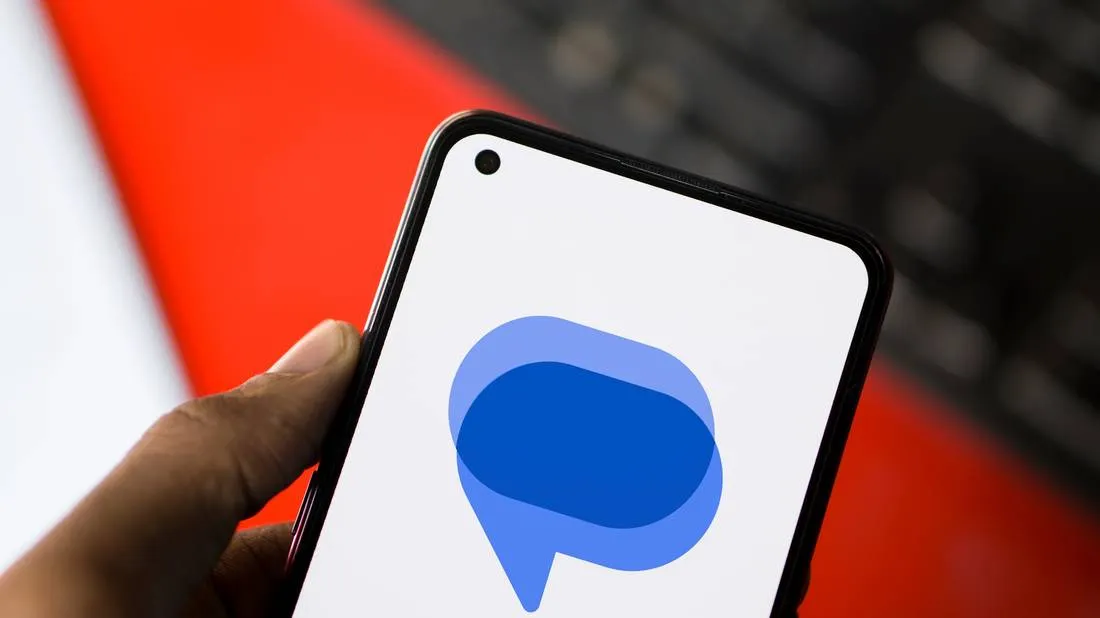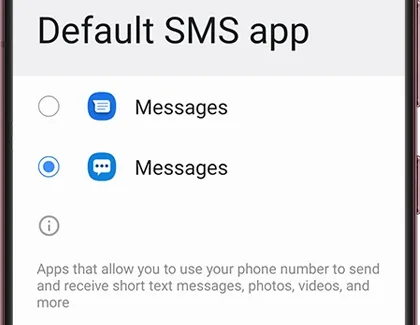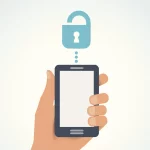As one of the most commonly used forms of communication, text messaging has become an integral part of our daily lives. Whether it’s for personal or professional purposes, we rely heavily on our phones to receive important messages from friends, family, and colleagues. So, what happens when your phone suddenly stops receiving text messages? It can be a frustrating and confusing experience, especially if you’re not sure why it’s happening.
If you own an Android phone and have encountered this issue, you’re not alone. Many users have reported facing problems with receiving text messages on their devices. However, figuring out the root cause of the problem can be challenging and time-consuming. In this article, we’ll discuss some of the possible reasons behind why your Android phone may not be receiving text messages and how you can troubleshoot the issue.

Network Connection
One of the first things you should check if you’re not receiving text messages on your Android phone is your network connection. Without a stable and strong network connection, you won’t be able to receive any messages, let alone send them. Here are some possible reasons why your network connection may be causing issues with receiving text messages:
Poor Reception
If you’re in an area with poor network coverage or low signal strength, it’s likely that you won’t be able to receive text messages. This is because your phone needs a stable and strong connection to communicate with the network and retrieve incoming messages. If you notice that you have limited or no signal bars on your phone, try moving to a different location or contact your network provider for assistance.
Carrier Outage
In some cases, you may not be receiving text messages due to a temporary outage or maintenance activity by your carrier. This could be due to various reasons such as bad weather, technical issues, or network upgrades. If you suspect that this might be the case, visit your carrier’s website or social media pages to check for any updates or contact their customer support for more information.
SIM Card Issues
Your SIM card is like a key that allows your phone to connect to your carrier’s network. If there are any problems with your SIM card, it can affect your phone’s ability to receive text messages. Some possible causes of SIM card issues include physical damage, outdated software, or incorrect settings. To troubleshoot this, try removing your SIM card and inserting it back into your phone. If that doesn’t work, you may need to replace your SIM card or contact your carrier for further assistance.
Messaging App Settings

Another reason why you may not be receiving text messages could be due to your messaging app’s settings. Here are some settings that you should check to ensure that your messages are not being blocked or restricted:
Blocked Contacts
If you have accidentally blocked someone on your messaging app, you won’t be able to receive messages from them. This can happen if you accidentally tap on the “Block” button while viewing a message or if you have added the contact to your block list manually. To unblock a contact, go to your messaging app’s settings and look for the “Blocked Contacts” option. Here, you can remove the contact from your block list.
Data Restrictions
Some messaging apps have settings that allow you to restrict the use of data for certain functions, such as downloading attachments or receiving messages from certain contacts. If you have enabled these restrictions, it could be the reason why you’re not receiving text messages. Check your app’s settings and make sure that data usage is not restricted for any important features.
Default Messaging App
If you have multiple messaging apps on your phone, it’s possible that your default messaging app may not be set correctly. This can cause incoming messages to be redirected to another app that you’re not using. To check your default messaging app, go to your phone’s settings and look for the “Apps” or “Applications” section. Here, you can see a list of all your installed apps and set your preferred messaging app as the default.
Software Updates
Keeping your Android phone and its apps up to date is crucial for the smooth functioning of your device. Failure to update your software regularly can result in various issues, including problems with receiving text messages. Here are some updates that you should consider checking:
Android OS
As the operating system that powers your device, Android releases regular updates to fix bugs and introduce new features. These updates also include security patches that keep your phone safe from potential threats. If you’re experiencing problems with receiving text messages, check if there are any available updates for your phone’s OS. To do this, go to your phone’s settings, scroll down to the “System” section, and tap on “Software Update.”
Messaging App Updates
Similarly, your messaging app may also need updates to address any bugs or compatibility issues with your device. Make sure to check the Google Play Store for any available updates for your messaging app. You can also enable automatic updates for your apps to ensure that you’re always using the latest version.
Third-Party Apps
If you have any third-party apps that are related to messaging or communication, they may also be causing issues with receiving text messages. These apps could be conflicting with your default messaging app or blocking important functions. Try uninstalling these apps temporarily and see if it makes a difference in receiving messages.
Memory and Storage
The amount of available memory and storage on your Android phone can also play a role in whether or not you’re receiving text messages. If your device is running low on memory or has reached its maximum storage capacity, it can cause various issues, including problems with receiving messages. Here’s what you should check:
Low Memory
If your phone’s internal memory is almost full, it can affect the performance of your device, including the ability to receive messages. This is because your phone needs a certain amount of free space for its processes to run smoothly. Delete any unnecessary files or apps to free up some memory and see if that solves the issue.
Full Storage
Similarly, if your phone’s storage is almost full, it can cause problems with receiving messages, especially if they come with attachments. Your phone needs enough space to download and store incoming messages, and if there isn’t enough room, they may fail to be delivered. Make sure to regularly clear out your device’s storage and transfer any important files to an external drive.
Corrupted Files
Corrupted files or data on your device can also cause issues with receiving messages. These files can get corrupted due to various reasons, such as malware infections, software glitches, or faulty hardware. To fix this, you can try using a file management app to scan and repair any corrupted files or do a factory reset of your phone.
Security and Privacy Settings

Certain security and privacy settings on your Android phone may also be preventing you from receiving text messages. These settings are designed to protect your device and personal information, but they can also cause issues with certain functions. Here are some settings you should check:
Battery Optimization
Android devices have a feature that optimizes battery usage by restricting the activity of certain apps in the background. While this helps to prolong your battery life, it can also affect the functionality of apps that require constant communication, such as messaging apps. To check if this is the case, go to your phone’s settings, tap on “Battery,” and look for the option to optimize battery usage for specific apps.
Do Not Disturb Mode
Do Not Disturb mode is a helpful setting when you want to silence notifications and alerts on your phone. However, if this mode is turned on, you won’t receive any text messages until it’s disabled. Make sure to check if your phone’s Do Not Disturb mode is enabled and turn it off if necessary.
Notification Settings
Lastly, make sure to check your notification settings for your messaging app. If notifications are disabled for your messaging app, you won’t be notified when new messages come in. Go to your phone’s settings, tap on “Apps,” select your messaging app, and make sure that notifications are enabled.
Hardware Issues
If none of the above solutions work, it’s possible that there may be an underlying hardware issue with your Android phone. Here are some possible causes of hardware problems that could be affecting your ability to receive text messages:
Damaged Device
Physical damage to your device, such as a cracked screen or water damage, can cause various issues with your phone’s functionality. This includes the ability to receive text messages. If you suspect that your device may be damaged, take it to a professional repair service for assessment and repair.
Faulty SIM Card
Sometimes, the problem may lie with your SIM card itself. If your SIM card is damaged or faulty, it can affect your phone’s ability to connect to the network and receive messages. Try inserting your SIM card into another device to see if it works or contact your carrier for a replacement.
Network Provider Problems
Finally, if none of the above solutions work, it’s possible that there may be an issue with your network provider. This could be due to technical problems with their network or an issue with your account. Contact your provider’s customer support for assistance and see if they can resolve the issue for you.
Conclusion
In conclusion, not receiving text messages on your Android phone can be a frustrating experience, but hopefully, this article has provided some insight into the possible reasons why it’s happening and how you can troubleshoot the issue. Always remember to keep your phone and its apps updated, regularly clear out unnecessary files, and check your network connection to ensure that everything is working properly. If all else fails, consult a professional or contact your network provider for further assistance.
